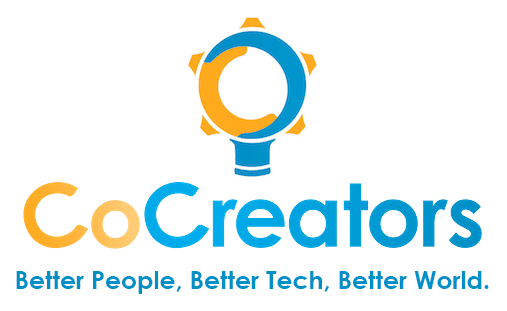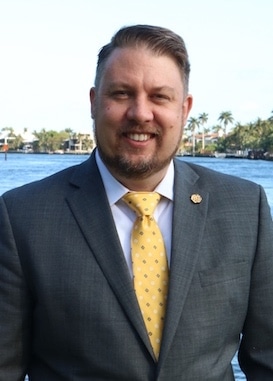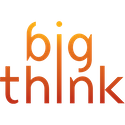As featured in H+ Magazine:
Several months ago when I wrote a post for h+ Magazine entitled “Religion+ for Humanity+” my aim was to primarily critique author Zoltan Istvan’s Huffington Post article entitled “I’m an Atheist, Therefore I’m a Transhumanist.” After being distributed around the Internet for a while, the responses to my article revealed that there are two prominent camps within the transhumanist movement that are fundamentally at odds. There are those who claim to be for Humanity+ and then there are those who are really Individualism+.
The basis of my article articulated three main points. The first was to spell out the philosophical foundations of the commonly theorized historical notion that everyone has a god. The second was to posit that instead of worshiping ourselves we should embrace a community model through which we will make humanity better together. And the third was that suggest that religious traditions have centuries of prior experience regarding such issues of community betterment to offer to such a discussion.
While responses to the crux of the article varied, particularly between theistic believers and non-believers, one main difference became evident that seemed to have little to do with one’s theological perspective or lack thereof. On one hand, there seem to be transhumanists that are generally concerned with the well being of the whole of humanity and the ultimate concerns of human existence. On the other hand, there appear to be self proclaimed transhumanists that put more emphasize the transformative powers of technology for the purpose of self-enhancement minus the regard for how it effects the rest of humanity.
The first viewpoint falls more along the understanding of what I have contended in the past. Specifically, that our evolutionary advancement toward the greater use of tools and technology may imply that part of what it actually means to be human includes an evolution toward a state of being that is better than how we currently exist. In such an understanding the prefix “trans” takes on a more nuanced meaning that implies traversing “across” the scope of what it might mean to be human. It is not a forfeiture of our humanity; it is a bettering of it.
The second perspective though is more in line with what I like to call Individualism+. This viewpoint focuses more on the right of the individual to freedom and self-realization through the exponentially advancing tools of technology. Such a position isn’t interested in community accountability but is instead a self-actualization that follows along the Nietzschean philosophy of der Wille zur Macht. Seeking to be the Übermensch, such proponents of Individualism+ seek to ultimately escape our humanity. Such a dichotomy of vision presented between proponents of H+ and I+ within transhumanism thus forces us to continually consider and reevaluate, in light of rapid technological advancement, what it fundamentally means to be human.
At the relatively recent Back to the Future in the Metaverse event, organized by Giulio Prisco, this issue of what human identity is was raised directly. That event, which discussed the Virtual Reality renaissance that is presently occurring, hosted Natasha Vita-More, the Professor at the University of Advancing Technology and the Chair of Humanity+, as one of it speakers. Vita-More articulated a profound observation that humans experience a “continuity of identity over time” that “we connect yesterday to today and we aspire towards tomorrow.” As such humans have this “persistence of experience from yesterday to today to tomorrow that’s part of the natural process of how our brain functions in relationship to our sense of identity and who we are.”
This identity that occurs through formation, I think, is an integral part of what it means to be human and resonates clearly in the teaching of many of the world great religious traditions. An escape from humanity as proposed by the I+ advocates would be a loss of this identity of formation and, as such, a loss of virtue. I+ is the reduction of humanity to: Me, My, Mine. It forsakes and abandons the prospect that what it means to be human involves learning how to best live in community. It also eliminates the possibility that the best way to live out our humanity may be to live self-sacrificially.
N.T. Wright, the famed former Bishop of Durham, New Testament Scholar, and Theologian helps to clarify why such virtue formation is important in his interview with Read the Spirit Magazine. According to Wright, a virtue is what happens when you have trained yourself to behave in a certain way. Wright says,
“One of the classic virtues is courage. Imagine a warrior who takes a strong drink, then charges off into battle spraying bullets everywhere and hollering. That’s not true courage. As a virtue, courage is when you’ve gone through a thousand occasions already in your life in which you’ve put others before yourself. Then, on occasion number 1,001, you see a grenade tossed into a schoolyard. At that moment, you automatically race in and try to toss the grenade away, even if you do not survive this act. That kind of automatic courage actually is the result of years of training.”
The paradox for the I+ proponent is that in order to maintain freedom and autonomy the I+ transhumanist must have a choice to do what they want. This means that some sense of independent character must be continually developed in the individual not merely “hard-wired” in order to maintain such autonomy. A loss of such freedom would mean a loss of such formation as well as a departure from Vita-More’s observation of our human characteristic of “continuity of identity over time.” The result is that when virtue ceases to occur through formation in community the person loses their identity as being human.
If the goal for the I+ advocate is to become post-human the question for us to consider is: Is that choice worth the loss of our human identity? Isn’t such a loss of one’s identity effectually death? If so, the goal of becoming the Übermensch is revealed to be a fallacy.
If this is the case, isn’t it then worth considering the benefits of the formation of virtue ethics within community? If our identity is tied to our character formation then doesn’t it behoove us to consider the potential philosophical and theological underpinnings that inform such community based formation? In this regard, one’s choice – and potentially one’s future state of identity and existence – very much depends on whether one chooses to be an H+ or an I+ transhumanist.






























1 thought on “Humanity+ Vs. Individualism+”
Comments are closed.